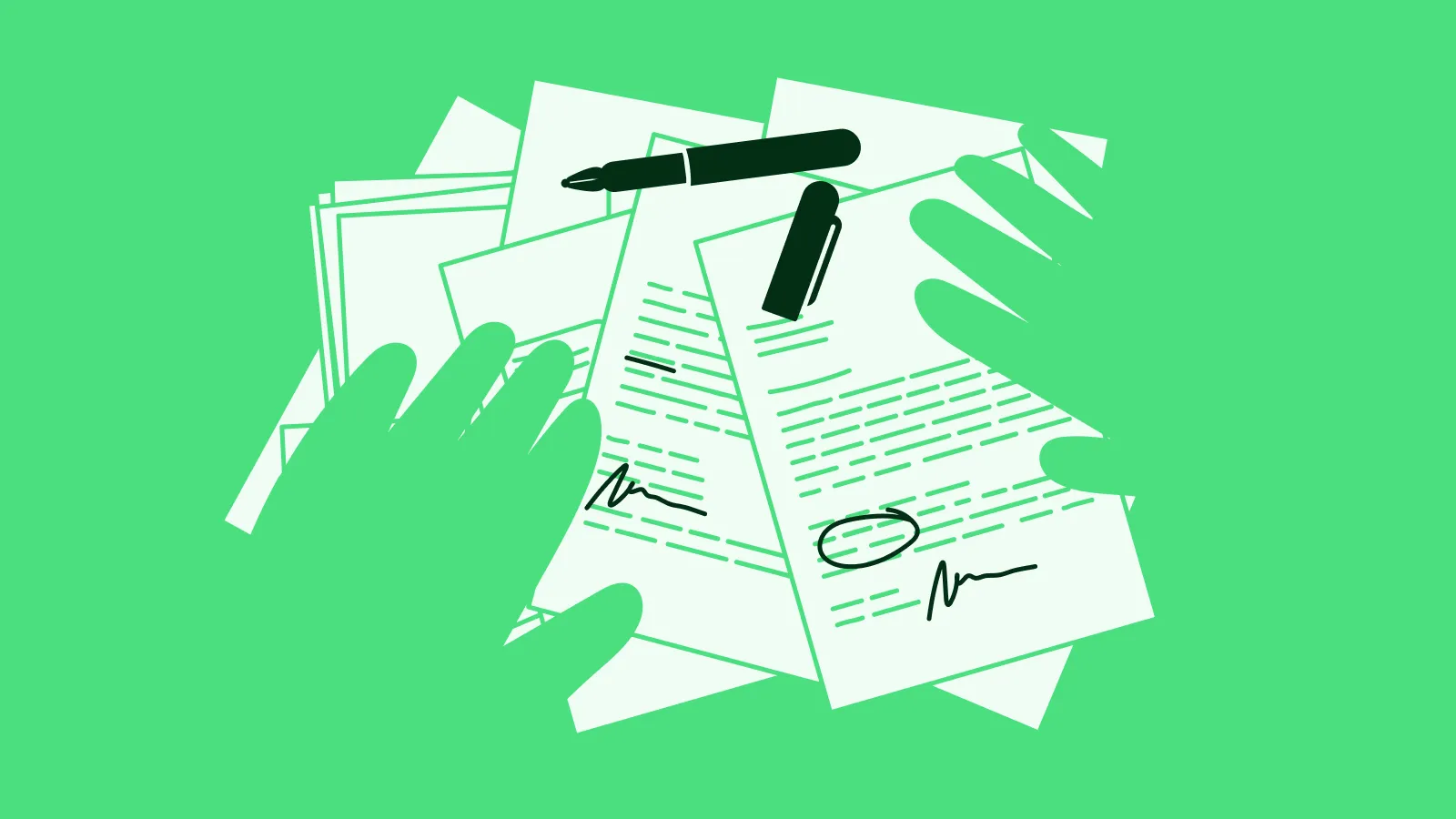How Much Mortgage Can You Get?
Find out how much you could borrow in our guide to mortgage affordability.
Your home may be repossessed if you do not keep up repayments on your mortgage.
Exclusive broker partner to

Author: Michael Whitehead, Head of Content
Reviewer: Paul Coss, Haysto Co-Founder and Chief Customer Officer
Updated: Jul 25 2025 4 mins
Buying a property is exciting, but the big question of how much you can borrow for a mortgage doesn’t have a one-size-fits-all answer. It depends on you, your finances, and what lenders think you can afford.
Whether you’re a first-time buyer or thinking about moving, we’re here to explain mortgage affordability in a way that makes sense. No jargon, just real guidance to help you feel in control of your mortgage journey.
How Mortgage Affordability Works
When you apply for a mortgage, lenders want to know one thing: can you afford it, even if things change down the line? They’ll start with a simple income multiple, but after that, they’ll take a much closer look at your whole financial picture.
Income Multiples
Most lenders use a multiple of your salary to give a rough idea of what you could borrow, which in the majority of cases will be between 4 and 4.5 times your annual income. If you’re applying with someone else, they’ll look at both your incomes together.
Here’s a quick example:
Earning £45,000 a year? You might be offered between £180,000 and £202,500.
A couple with £80,000 between them? That could mean £320,000 to £360,000.
You can use our mortgage affordability calculator below to see how this could work out for you based on your income.
Potential property value:
Your deposit:
You could borrow:
Based on x your income at £, plus your deposit of £.
Speak with one of our experts today to learn more about your options.
Get Started NowThis calculator provides an estimate of how much you may be able to borrow for a mortgage based on the information you have entered. The figures are for illustrative purposes only; the actual amount you can borrow may differ, and this does not constitute either a mortgage offer or a mortgage in principle (MIP).
Your home may be repossessed if you do not keep up repayments on your mortgage.
It’s important to remember these are just rough estimates at this stage. The real decision comes down to your overall affordability.
Affordability Checks
This is where things go a bit deeper. Lenders want to know much more about your:
Net disposable income: What’s left after your bills and expenses?
Outstanding credit: Are you juggling credit card payments or personal loans?
Spending habits: How consistent is your income, and is it enough to cover all your regular financial obligations?
They’ll look at everything from your direct debits to your daily coffee runs to work out if you can sustain the monthly mortgage repayments, not just now, but throughout the term of the loan.
What Lenders Will Look At:
Proof of income. Expect to be asked to show your last 3 payslips, P60s, or if you’re self-employed, your last 2-3 years of tax returns. If your income is a bit more complicated (like freelance work), it’s a good idea to have a clear record of your earnings.
Your job type. All mortgage lenders would prefer everyone to have been in a permanent job for at least the last 3 years, but that’s not how the modern world works. So, don’t lose heart if you’re on a contract or self-employed. Many lenders are much better equipped to consider a wide range of income streams nowadays. What matters more is how stable and regular your income is.
Credit score and financial history. Lenders will check your credit file to see how you’ve handled money in the past. A positive Credit Report indicates that you take good care of your finances.
Your debts vs. your income (DTI). If you’re spending half your income paying off other debts, lenders may be more cautious. A lower DTI shows you’ve got breathing room, and that means you might be able to borrow more.
How much you’ve saved. A bigger deposit often means better rates and, in some cases, the ability to borrow more. It shows lenders you’re serious and have prepared well in advance to buy a property.
What you spend every month. Think groceries, school fees, travel costs, and subscriptions. The more you spend each month, the less you may be able to borrow. Lenders want to know you’ll still have enough left over once the mortgage is paid to cover all your other obligations.
Your age and mortgage term. If you’re closer to retirement, lenders might offer you a shorter mortgage term. That could mean higher monthly repayments and a smaller total mortgage amount.
What’s a Mortgage Stress Test?
A mortgage stress test checks if you could still afford your mortgage if interest rates went up. Even though the official rule was scrapped in 2022, many lenders still use it. It’s their way of checking you won’t be stretched too thin if things change.
For example, if your current deal is 5%, they might check if you could still pay at 7%. It’s all about future-proofing your finances.
How It Works if You’re Self-Employed
If you’re self-employed, lenders will still use a multiple of your income for an initial indication of how much mortgage you can get. For affordability checks, lenders will want to see your last two or three years of certified accounts or tax year overviews from HMRC.
The income amount you can use depends on your actual trading status and works like this:
Sole traders, partnerships and freelancers: Lenders look at your net profit before tax.
Limited company directors: Depending on the lender, you can often use salary plus dividends or even retained profits.
What Can Stop You From Borrowing More?
Some things might limit your options or reduce the amount a lender is happy to offer, such as:
Your income changes a lot from month to month.
You’re carrying a large amount of personal debt.
You have a low deposit.
You’ve missed payments in the past.
You’re buying an unusual property (like a barn conversion or flat above a shop)
Every lender is different. Just because one says no, doesn’t mean another won’t say yes, which is why choosing the right lender for your circumstances is so important.
How to Boost What You Can Borrow
Want to increase your chances of getting the mortgage you need? Here are some smart steps you can take that should help:
Get on top of your credit score (check for errors, pay bills on time).
Pay off or reduce existing debts.
Save as much as you can for your deposit.
Cut back on unnecessary monthly spending.
Avoid applying for new credit just before your mortgage application.
Start Your Mortgage Journey the Right Way with Picnic
Every mortgage application is unique. What works for one person might not work for another, and that’s okay. The key is to understand what lenders want, prepare your finances, and get help if you need it.
That's where we come in! When you choose Picnic, you’ll have up to four members of our mortgage team working exclusively on your application from start to finish.
Whatever the circumstances, we’ve got all bases covered. Ready to speak to us? Great, just make an enquiry and we’ll be in touch to get started.
Frequently Asked Questions
Yes. If they’re regular and backed up by payslips, P60s, and bank statements, many lenders will at least consider including a portion of them to work out how much you can borrow.
Some lenders may even be willing to look at allowing 100% of any bonus, overtime or commission if you can prove that it's consistent over several years.
Yes, it’s possible, depending on the type of credit issue you’ve had, when it happened, and the amount involved. It may mean fewer options or higher rates, but specialist lenders are available who can help.
To find out more, read our guide: How to get a mortgage with bad credit.
No, not really. Affordability is a key factor used by lenders, who assess your income and spending to determine how much you can borrow for a mortgage. Credit checks are an evaluation of your financial history from the previous six years and are produced by Credit Reference Agencies (CRAs).
Related Pages
Porting Your Mortgage

The Picnic Guide To Buying a Home

How Conveyancing Works

How Stamp Duty Works

Speak to One of Our Experts
First or next move, remortgaging or investing - get clear advice from our award-winning experts to help you find the right mortgage.
Your home may be repossessed if you do not keep up repayments on your mortgage.